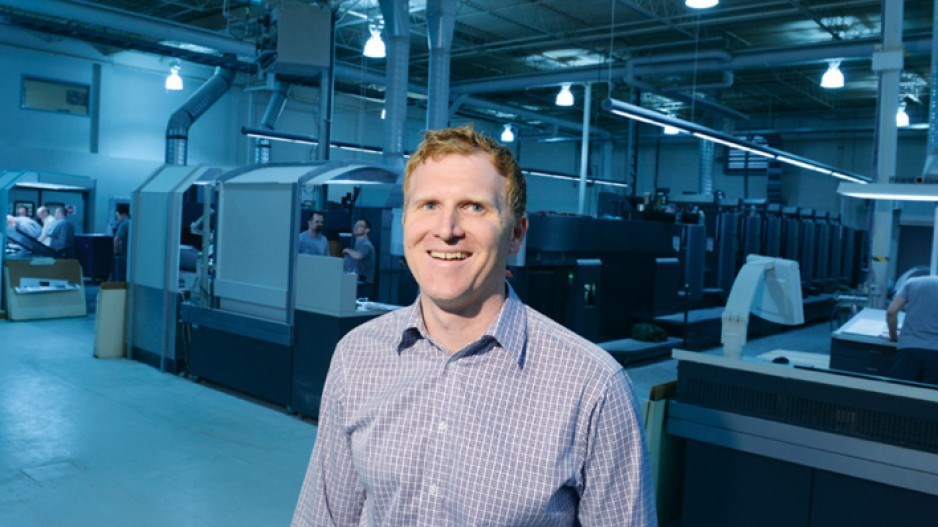The monthly recycling bill at MET Fine Printers had reached about $3,000 by the time the Vancouver-based firm teamed with Climate Smart, an organization that helps businesses implement sustainable environmental practices.
“In a printing company you can imagine there’s chemistry, there’s metal, there’s plastics, there’s all sorts of stuff,” said Scott Gray, MET’s vice-president of branding.
But since ramping up its sustainability efforts, MET’s monthly recycling costs have dropped to $250.
Meanwhile, an average of one garbage container per week is left on the curb outside MET’s downtown facilities – down from two commercial bins a month.
“We just want to create … a marketplace where [customers] are working with good people,” Gray said. “And if they see [what] we’re doing – we’re responsible, we’re putting our money where our mouth is, we’re leading by action – then people will want to engage with you.”
For MET, this means everything from going carbon-neutral for four consecutive years to working as a research site for the development of recyclable rubber printing blankets, which are typically tossed in landfills after just a few uses.
Richard Kouwenhoven, president of Hemlock Printers, said environmentally sustainable business practices are part of an evolution in an industry that wasn’t well known for being green a decade ago.
“There’s a wider recognition for post-consumer waste and also just a wider interest in understanding where our materials are coming from, what options are available for reducing environmental footprints – particularly for printing because of the high sensitivity to the impact of paper,” he said.
His Burnaby-based company, which provides clients with a carbon-neutral printing program to offset emissions, since last fall has been offering a new paper product made from agricultural waste.
Step Forward Paper, more commonly known as “wheat sheet”, is produced from wheat-farm byproducts.
It has a carbon footprint on par with 100% post-consumer waste recycled paper, with a comparable cost.
Kouwenhoven said there are practical business purposes behind offering these products and services.
“There would be legitimate economic opportunities if we were the first to bring this to a customer who was interested. It may help us strengthen the relationship with those kinds of customers who are placing environmental progress as one of their priorities. And there are many who are doing that.”
Climate Smart client relations associate Jens Ourom said businesses that come to him are often looking to either reduce costs or gain recognition for sustainable business practices. More often than not, they find both after partnering with Climate Smart.
He said the trend toward sustainability comes down to the increasing value people are placing on environmentally sound practices, especially in Metro Vancouver.
“Both consumers and other businesses are looking for companies that are walking the talk in terms of sustainability.”
Gray said some clients may think going green automatically means business costs go up, but the company’s reduction in the monthly recycling bill shows it actually makes business sense to pursue sustainable practices.
“It’s great, because the print industry has come a long way in the last 10 years,” he said.
“It’s part of a new social economy.”




